Painkiller addiction is a global issue that affects many people around the world. While painkillers are essential in treating chronic pain, the misuse of these drugs can lead to addiction and other severe health consequences.
Misuse of prescription drugs is second only to marijuana use as the most common illicit drug in the nation. Over 16,000 people died from it in 2020, making up around 16% of all drug-related deaths since 1999.
Fortunately, prescription drug rehab is available for those who seek it.
What Is Painkiller Drug Misuse
Painkillers are misused or abused when someone takes them differently than prescribed.
The use of prescription painkillers can help patients combat pain and deal with legitimate medical conditions. It’s possible, however, to abuse prescription drugs if a patient takes them in a different way than what their doctor recommends.
Painkillers have secondary effects such as numbing pain or producing euphoria that compel users to abuse the substance, which can lead to users taking them for other purposes.
Recognizing Painkiller Abuse
It’s easier to recognize a problem once an addict has been struggling with addiction for some time. Not only will many aspects of their health and behaviors change but there will also be clear patterns of long-term abuse that make it easy to diagnose the problem.
But that might not be the case when someone is just starting to fall victim to painkiller abuse.
It can be difficult to determine whether someone is abusing opioids if they take them as a prescription. In the early stages of opioid addiction, people with opioid use disorders often conceal their addiction.
So what are the signs someone is abusing painkillers?
Painkiller addiction signs can be identified by observing behaviors as well as physical painkiller addiction symptoms that may occur.
Signs of Painkiller Misuse
The general signs of painkiller abuse and addiction are:
- Increased drug tolerance
- Taking more than the approved dosage
- Continuing to take the drug even after the pain has ceased or worsened
- Lying about the use of painkillers
- The withdrawal symptoms when the drug is unavailable
- Avoiding family and social activities
Types of Painkiller Rehab Centers
Before considering any painkiller addiction treatment, a professional will need to assess the severity of your addiction, the duration of the addiction, and the type of pain medication used. These factors will help you determine which prescription painkiller treatment option is best for you.
Different prescription drug rehab centers offer various painkiller addiction treatment programs such as:
- Inpatient
- Outpatient
- Detox
- Holistic
- Behavioral therapies
Since opioids and painkillers tend to be extremely addictive and cause heavy physical withdrawals, it’s likely that most patients will need to opt for both detox and inpatient painkiller addiction treatment.
Benefits of Getting Sober in Rehab
For many people struggling with painkiller addiction, joining a rehab center can be life-changing. There are several benefits to joining a prescription drug rehab on your recovery journey including.
- A structured environment to help overcome addiction
- Comprehensive care and support to meet your unique needs
- A team of professionals, including doctors, nurses, therapists, and counselors, who can provide the right prescription painkiller treatment
- Developing new coping mechanisms
- Access to the latest technologies and prescription painkiller treatment
- Aftercare programs and support groups
- Freedom from addiction without having to quit cold turkey, which can be dangerous in some cases.
Preparing for Rehabilitation at a Painkiller Rehab Center
Preparing for rehabilitation at a prescription drug rehab center is a crucial step on the journey to recovery. You can prepare for the process by following these tips:
- Find the right rehab center to match your needs.
- Consult a rehab center professional about your medical history to determine the most appropriate prescription painkiller treatment plan
- Make sure your affairs are in order before entering rehabilitation.
Your journey to recovery does not end when you complete a painkiller rehab program. You need aftercare resources and support programs to prevent relapse and maintain your recovery. There are several resources available, including:
- Follow-up care at your rehab center
- Support groups, such as NA
- Counseling
Painkiller Drug Addiction Treatment
If you or a loved one is suffering from painkiller addiction then it’s time to get help.
There are prescription drug addiction treatments available like 90210 Recovery that can help you or your loved ones get the help you need to sober up and stay that way.
Contact 90210 Recovery today for help and one of our recovery experts will be here to assist you.


